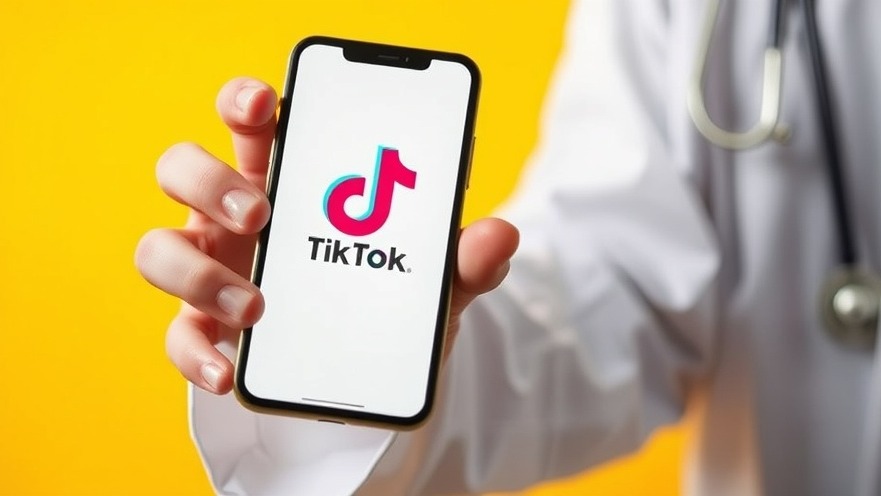
The Rise of Health Misinformation in the Digital Age
As social media platforms continue to shape the way we consume information, TikTok has emerged as a particularly influential yet controversial source of health-related content. A recent Sermo survey indicates that 23% of physicians advocate for a ban on TikTok, identifying it as a significant vector for health misinformation. This statistic signals an urgent call from within the medical community to address not only the misinformation but also the broader implications it could have on patient care.
TikTok's Impact on Patient Perceptions
Nearly half of the physicians surveyed (43%) cited TikTok as a primary source of misleading health information, surpassing other concerns. This underscores the potential harm the platform poses, as patients may form treatment opinions based on viral trends rather than factual information. Given that many TikTok users are not medical professionals, there is a worrying trend of oversimplification and misrepresentation of complex health topics.
The Doctor-Patient Relationship in the Digital Era
Concerns about the erosion of professional credibility are paramount in this debate. With 24% of physicians citing that TikTok undermines their authority, the risk extends beyond just misinformation; it affects trust in healthcare providers. If patients are influenced by viral misinterpretations of medical practice, it can lead to decisions that jeopardize their health.
Counterarguments: Balancing Engagement and Misinformation
Interestingly, not all physicians agree on the path forward. A portion of doctors argues that banning TikTok won’t inherently solve the misinformation problem; rather, it could lead to other platforms filling the void without enhancements in education. Some believe the solution lies in empowering credible voices within the system, creating campaigns to combat misinformation actively.
Engaging with Patients through Medical Influencers
Currently, 21% of physicians report using TikTok for health-related information. This engagement could be harnessed for better patient education if approached correctly. Some medical professionals, known as “medfluencers,” leverage the platform to disseminate accurate health information, showing that not all TikTok content is detrimental. This raises a question: Instead of banning, could the platform be refined to prioritize factual health communication?
Future Trends in Health Communication
Looking ahead, there is a pressing need for a combined effort from the medical field and social media platforms to develop guidelines and educational campaigns. These initiatives could include promoting verified medical content and ensuring that non-professionals do not dominate health discussions. As the digital landscape evolves, an emphasis on digital health literacy can arm patients with critical thinking skills needed to discern credible information.
Practical Steps for Concierge Practices
As a concierge medical practice owner, it’s essential to monitor trends in digital health information critically. Engage in conversations with your patients about how they use social media and guide them toward reliable health information. Moreover, consider using platforms like TikTok as effective communication tools while establishing your own presence online. Creating engaging, clear, and informative content can reinforce your credibility and foster trust in your practice.
In an era where health information is a click away, remaining authoritative means adapting to the digital world while advocating for responsible health communication. Discerning between credible information and misleading content is essential for both patient health and professional integrity.
 Add Row
Add Row  Add
Add 




Write A Comment